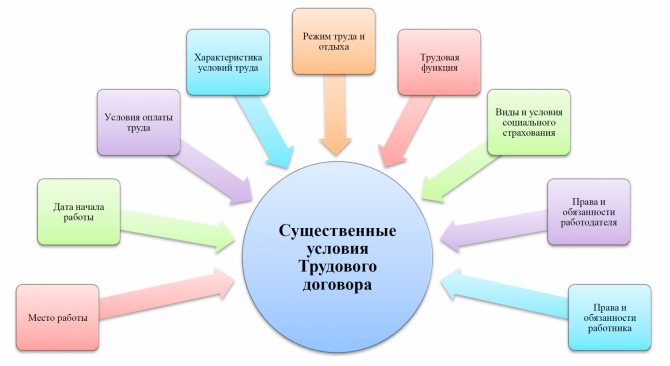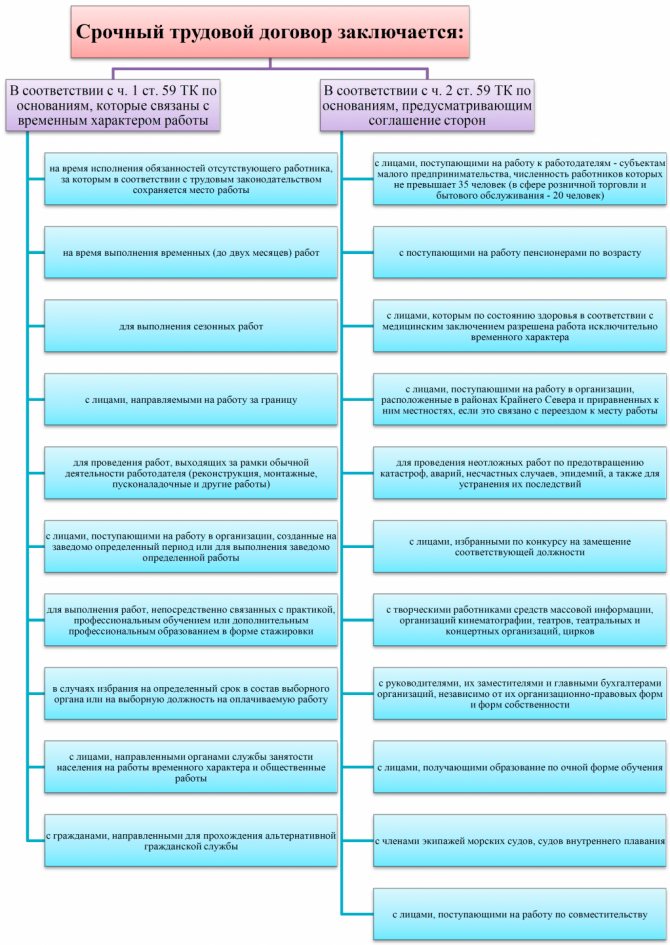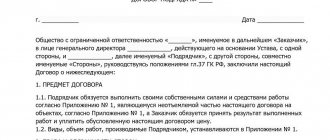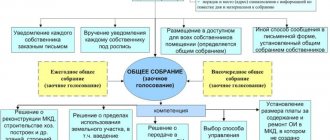In the practice of working with hired personnel, situations sometimes arise when the work of employees is needed not on an ongoing basis, but for some time. In this case, it is worth concluding a fixed-term employment contract with such employees. Unlike ordinary (unlimited) contractual relationships, such contractual relations cannot last longer than the time specified by law.
Fixed-term contracts have their own nuances of conclusion, which should be observed by both parties in order to avoid misunderstandings, which will then have to be resolved in court. Let us analyze the grounds for formalizing such labor relations, their legal basis, as well as the main points that employees and employers need to take into account.
Legislative justification for fixed-term contracts
The word “urgent” in the definition of this type of contract does not mean any additional speed of its execution; it comes not from “urgency”, but from “deadline”. This is how it is declared to differ from contracts that are concluded for an indefinite period.
In the usual form of employment contractual relations, the start date of work is precisely known, but the time of separation and the reasons for dismissal cannot yet be determined. But when the last condition is known to both parties, that is, both the employee and the employer know when they will terminate their cooperation agreement, it is advisable to formalize the relationship with a predetermined period - a fixed-term employment contract .
The Labor Code of the Russian Federation calls an employment contract mandatory when formalizing the “employee-employer” relationship (Article 56 of the Labor Code of the Russian Federation), and the term is its essential condition. Options when an employer gives an employee temporary employment are defined in Art. 59 Labor Code of the Russian Federation. Their determining factor is an important circumstance: a fixed-term employment contract is legal only when, for objective reasons, it is impossible to conclude a permanent one.
NOTE! To conclude such an agreement, the will of the employer and even the consent of the employee are not enough; its execution must comply with the grounds given in the legislation. Otherwise, if you have to deal with it in court, a fixed-term contract concluded on an illegitimate basis will be recognized as unlimited.
Fixed-term employment contract: concept, features
First, let’s determine how a fixed-term employment contract differs from a contract concluded for an indefinite period, and what they have in common.
Art. 58 of the Labor Code of the Russian Federation establishes that if the employment contract does not indicate its validity period, then it cannot belong to the category of fixed-term employment contracts. In Russia (as, for example, in Japan) the procedure for concluding a lifelong employment contract has not been established. However, our labor legislation is focused on protecting the labor rights of employees.
That is why an employer cannot enter into a fixed-term employment contract with an employee solely at his own request. Labor Code in Art. 59 of the Labor Code of the Russian Federation determines in which cases it is necessary to conclude a fixed-term employment contract, and when this is permissible by agreement of the parties.
The differences between a fixed-term employment contract and a regular one are due to the reasons for their conclusion and the duration
Note that a fixed-term employment contract in its main characteristics, aimed at protecting the labor rights of employees, does not differ from a contract concluded for an indefinite period.
The most important quality of a fixed-term employment contract is that this contract has all the basic qualities of an employment contract. Such an agreement must contain all the main characteristics specified for an employment contract in Art. 56 Labor Code of the Russian Federation. A fixed-term employment contract specifies the work and rest schedule, the employee’s work function, working conditions, payment terms, social insurance, etc.

For a fixed-term employment contract, all essential conditions specified in a regular TD apply
What may be the grounds for concluding a fixed-term employment contract?
Russian legislation provides for two options when it is possible to conclude a fixed-term employment contract:
- A fixed-term employment contract is concluded when the employment relationship cannot be established for an indefinite period, taking into account the nature of the work to be performed or the conditions of its implementation. These cases are provided for in part one of Article 59 of the Labor Code of the Russian Federation.
- A fixed-term employment contract may be concluded by agreement of the parties to the employment contract without taking into account the nature of the work to be performed and the conditions for its implementation. This is permissible in cases where the temporary nature of the employment contract cannot significantly violate the employee’s labor rights. Such cases are provided for in part two of Article 59 of the Labor Code of the Russian Federation.

The grounds for concluding a fixed-term employment contract are set out in Art. 59 Labor Code of the Russian Federation
Disadvantages and advantages of a fixed-term employment contract
Concluding a fixed-term employment contract can have pros and cons for both the employee and the employer.
Disadvantages for the employee:
- cooperation with the employer will inevitably end at a certain point;
- simplified dismissal procedure (after completion of the contract period or after completion of work);
- shortened dismissal period: notification 3 days before the end of work or the day before the departure of the main employee (Article 79 of the Labor Code of the Russian Federation);
- if the text of the contract was drawn up incorrectly, the employee has a chance to convert the fixed-term cooperation into an indefinite one in court.
Disadvantages for the employer:
- the pregnancy of an employee on a temporary contract makes it impossible to dismiss her before giving birth (except in the case of liquidation of the company);
- if the employer does not warn the employee in time about the expiration of the contract, this contract automatically becomes indefinite;
- If the contract is not drawn up correctly, the dismissal of an employee is illegal, therefore, by a court decision, he is reinstated in his position, which causes great inconvenience, especially if a temporary employee was hired during the absence of the main one.
In addition to direct disadvantages, for the employer one can note the possibility of hidden problems.
It is extremely important to correctly draft a fixed-term employment contract. Missed nuances can lead to the fact that the contract will be considered unlimited:
- It is unacceptable to conclude several fixed-term contracts in a row with one employee if the job function specified in the contract does not change;
- the text of the agreement must indicate the reason for its preparation (Article 57 of the Labor Code of the Russian Federation);
- The completion date of the contract must be indicated.
The advantage for the employee is that he has entered into a formal employment contract, albeit for a limited period. Under a fixed-term contract, an employee will enjoy the same labor and social rights as under an open-ended contract.
The advantage of a fixed-term contract for an employer is that when carrying out temporary work, the company does not need to expand its staff. If a permanent employee is dismissed, you will have to pay compensation associated with the staff reduction, and hiring an employee for a temporary position will avoid unnecessary costs.
Video: if you signed a fixed-term contract, what awaits you
The attractiveness of fixed-term employment contracts
The party that benefits most from entering into a fixed-term rather than an open-ended contract is the employer. The reasons are obvious:
- an employee on a temporary basis is more manageable;
- It is easier to motivate a “conscript”, since the extension of cooperation with him directly depends on the management;
- it is much easier to carry out the dismissal procedure;
- an employee dismissed at the end of his term cannot challenge such dismissal;
- In this way, you can get rid of any categories of employees, even the most socially protected ones.
For workers, as a rule, permanent employment is preferable, providing certain guarantees and confidence in their future. Domestic legislation and the International Labor Convention (ILO) adhere to the same position, seeking to minimize the number of workers employed on a temporary basis.
Features of a fixed-term employment contract
The determining factor in the choice in favor of the urgency of contractual relations is an important circumstance: a fixed-term employment contract is legal only when, for objective reasons, it is impossible to conclude a permanent one.
This reason must be indicated in the text of the contract.
The validity period of such an agreement cannot exceed 5 years. If the document does not indicate specific terms or an event that terminates the contractual relationship, it will automatically be considered a contract with an indefinite period. Likewise, if a period of more than five years is specified.
Termination of a fixed-term contract must be indicated in the text. This is possible in two ways:
- indicating a specific date when the contract will be terminated;
- designation of an event, the occurrence of which terminates the validity of the fixed-term contract.
The arrival of the final date does not mean immediate termination of work: the employee must be notified in writing 3 days in advance of the upcoming dismissal in accordance with its expiration. If this is not done, the dismissal can be challenged.
In the second case, prior notification is impossible, since the occurrence of an event automatically terminates the fixed-term contract, as provided for by its terms. Most often, such an event is the return to work of the main employee, instead of whom a temporary one was hired.
We draw up a fixed-term employment contract
Now let's move on directly to drawing up a fixed-term employment contract. As mentioned above, it is concluded only if there are grounds established by the Labor Code or other federal law. Therefore, when drawing up a contract, you need to indicate for what reasons it is concluded with the employee for a certain period. This requirement is set out in paragraph 4 of part 2 of article 57 of the Labor Code of the Russian Federation.
Mandatory terms of the employment contract
A fixed-term employment contract, like any other, must contain mandatory conditions. According to Part 2 of Article 57 of the Labor Code, this is:
- place of work;
- labor function;
- work start date;
- salary;
- operating mode;
- compensation;
- nature of the work;
- condition on compulsory social insurance, etc.
How to determine the terms of the contract
The term of the employment contract is probably one of the most important points of this document. Without it, the contract would not be considered urgent. Therefore, we will pay special attention to it. How to formulate a term condition? It all depends on the circumstances of the conclusion of the contract. Let's look at them.
The expiration date of the contract has been determined. If a specific date is set for the end of the employment contract, it must be written down in the document. Let us remind you that a fixed-term contract can be concluded for a period not exceeding five years.
In particular, the expiration date of a fixed-term employment contract is indicated in the case when the employing organization is created to perform specific work. Accordingly, employees will be hired for a period not exceeding their duration. This also applies to seasonal work (if the specific end date of the season is known) and elective positions.
Let's look at how an entry about a deadline can be formulated using an example.
Example 1
L.D. Smekhov got a job at Veselye Gorki LLC (amusement park) as a janitor. The park is open to visitors from May 1 to October 1. The employer entered into a fixed-term employment contract with him for the period of operation of the park. How to reflect the term condition in a document?
Solution
The clause of the contract that states the term of its validity will look like this:
"2. Contract time
2.1. The Agreement comes into force on the date of its conclusion by the Employee and the Employer (or from the day the Employee is actually admitted to work with the knowledge or on behalf of the Employer or his representative).
2.2. Start date: May 1, 2010.
2.3. The contract was concluded for five months for the period of operation of the amusement park from May 1 to September 30.
2.4. The contract expires on September 30, 2010.”
The expiration date of the contract has not been determined. In some cases, it is impossible to determine the end date of an employment contract. Here are some typical situations when the contract specifies a condition regarding its validity period, and not a specific date. Thus, concluding a fixed-term employment contract is possible:
- in connection with the employee going on maternity leave and child care leave;
- employee illness;
- performing seasonal work.
In these cases, the end of the employment contract is associated with a specific event, for example, the employee’s return to work after a long illness. In this regard, Resolution No. 2 provides the following explanations. If a fixed-term employment contract is concluded to perform a specific job, and the exact date of its completion is unknown, the contract is terminated upon completion of this work by virtue of Part 2 of Article 79 of the Labor Code.
Example 2
Confectioner P.L. Pryanishnikova was accepted into Vanil LLC for the duration of pastry chef V.A. Kalacheva has been undergoing treatment in a hospital since August 1, 2010. With P.L. Pryanishnikova signed a fixed-term employment contract. How will the term of the contract be spelled out if it is unknown when exactly V.A. Will Kalacheva return to her workplace?
Solution
In the employment contract with P.L. Pryanishnikova should have the following wording:
"2. Contract time
2.1. The Agreement comes into force on the date of its conclusion by the Employee and the Employer (or from the day the Employee is actually admitted to work with the knowledge or on behalf of the Employer or his representative).
2.2. Start date: August 1, 2010.
2.3. The contract was concluded for the period of temporary disability of confectioner V.A. Kalacheva, who retains her job.
2.4. The validity period of the contract is determined until the return of the main employee V.A. Kalacheva.
2.5. If the main employee receives V.A. Kalachev’s disability with limited ability to work or dismissal, the Employer extends this contract with his replacement Employee for an indefinite period.”
Probation
Is it possible to establish a probationary period when concluding a fixed-term employment contract? It all depends on how long and for what work the employee is hired.
Seasonal work. When concluding an employment contract for the duration of seasonal work, a probationary period of more than two weeks cannot be established (Article 70 of the Labor Code of the Russian Federation). In this case, the seasonality condition must be included in the text of the contract in accordance with Article 294 of the Labor Code.
Temporary work. When drawing up a fixed-term contract for the duration of temporary work (up to two months), a probationary period is not established (Article 289 of the Labor Code of the Russian Federation).
Other works. When concluding an employment contract for a period of two to six months, the trial cannot exceed two weeks (Article 70 of the Labor Code of the Russian Federation).
Let us remind you that according to Article 70 of the Labor Code of the Russian Federation, a test for hiring is also not established:
- pregnant women and women with children under the age of one and a half years;
- persons elected through a competition to fill the relevant position, conducted in the manner established by labor legislation and other regulatory legal acts containing labor law norms;
- under the age of 18;
- those who have graduated from state-accredited educational institutions of primary, secondary and higher vocational education and who are entering work for the first time in their specialty within one year from the date of graduation from the educational institution;
- those elected to an elective position for paid work;
- invited to work by way of transfer from another employer as agreed between the employers;
- to other persons in cases provided for by the Labor Code, other federal laws, and a collective agreement.
The probationary period cannot exceed three months, and for heads of organizations and their deputies, chief accountants and their deputies, heads of branches, representative offices or other separate structural divisions of organizations - six months, unless otherwise established by federal law.
We draw up a fixed-term employment contract
Let's move on directly to the design of the document. As we noted above, all mandatory conditions must be included in it.
Particular attention should be paid to the reasons why a fixed-term employment contract is concluded and the timing of its expiration. Let's look at the preparation of this document using an example.
Example 3
Civil engineer E.V. Nezabudkin was hired by Project-Design LLC, created specifically to service the international youth sports games “Sportlantida”, planned in Volgograd in August 2010. Preparations for them began in January 2010, construction work should be completed on July 15, 2010. The organization will operate until July 31, 2010. With E.V. The Nezabud-kins need to conclude a fixed-term employment contract for the period of existence of this organization. How to compose it?
Solution
The fixed-term agreement is shown below.
Entry in the work book during employment
According to paragraph 4 of the Rules for maintaining and storing work books, producing work book forms and providing them to employers, approved by Decree of the Government of the Russian Federation of April 16, 2003 No. 225, information about the employee, the work he performs, transfer to another permanent job, dismissal, and also indicate the grounds for termination of the employment contract and enter information about rewards for success in work.
Accordingly, if a fixed-term employment contract has been concluded with an employee for any period, it is necessary to make an entry about this in the work book or create a new one if there is none. The employer must make a record of hiring in the conscript’s work book if he has worked for him for more than five days and this work is the main job for this employee. This is the requirement of paragraph 3 of the Rules for maintaining and storing work books, producing work book forms and providing them to employers, approved by Decree of the Government of the Russian Federation of April 16, 2003 No. 225.
However, this does not mean that it is necessary to indicate in the work book that a fixed-term employment contract has been concluded. Also, attention is not focused on the fact that the employee, for example, replaces an absent specialist. It is enough to make a standard entry, for example: “Hired as a mechanic,” indicating the serial number of the entry, the date, as well as the details of the hiring order. This, in particular, is stated in the letter of the Federal Service for Labor and Employment dated 04/06/2010 No. 937-6-1.
With whom can you enter into fixed-term employment contracts?
Employers formalize such relationships with those employees whose nature of work does not make it possible to determine the duration of the working relationship or, on the contrary, quite clearly indicates their end. Such categories of personnel include, for example, the following:
- seasonal workers;
- employees hired to complete a specific type of work by a specific date;
- employees who were sent to work abroad or to another branch of the organization;
- specialists hired from outside to perform work not provided for by the organization’s core activities;
- teachers who can work in the corresponding position only for the duration of the competition;
- replacing an employee on long-term sick leave or maternity leave, etc.
Transfer to a fixed-term employment contract from an open-ended one
As a rule, employees work under an open-ended contract. However, sometimes there is a need to transfer to a fixed-term contract. This can be done, but the procedure must comply with all the rules.
Reasons for transferring to a fixed-term employment contract
An employee can only be transferred to a fixed-term contract if there are sufficient grounds for doing so. If there are no such grounds, the agreement will be considered unlimited. An employer must not enter into fixed-term agreements for the purpose of deviating from providing employees with rights and guarantees. Let's look at the reasons why an employer makes a transfer:
- The employee is appointed to replace the temporarily absent employee. The latter retains his place of work.
- An employee is sent to temporary work abroad.
- The work involves a temporary expansion of production.
- The employee has a disability.
That is, transfer to a fixed-term contract is relevant in cases where the employee’s status changes. For example, he developed health restrictions.
Is it legal to transfer to a fixed-term contract?
The issue of the legality of transferring an employee to a fixed-term agreement is extremely controversial. If the employer initially signed the employee up to an open-ended contract, he must ensure compliance with the terms of this agreement. That is, the worker receives the right to work for an unlimited time.
The contract can be terminated only on the basis of the clauses established by the Labor Code of the Russian Federation.
For this reason, transferring an employee from an open-ended to a fixed-term contract is not legal. The employer cannot, for the purpose of transfer, simply enter into an additional agreement. The employee, if desired, can easily challenge this document.
Another significant mistake is drawing up a new agreement while the previous agreement is still in effect. According to the law, if two documents apply to an employee, the document with the most favorable conditions will be valid. In this case, the most advantageous would be an open-ended contract, since it provides a larger list of rights.
IMPORTANT! Many employers believe that entering into a new agreement automatically cancels the previous agreement. However, this is a wrong position. In order for only one act to be in effect, the old act must be legally repealed.
How to legally transfer a person to a fixed-term contract?
The only legal way to transfer an employee to a fixed-term contract is to terminate the previous agreement and draw up a new one. However, you need to take into account all the disadvantages of this path:
- The need to pay compensation for vacation that was not used.
- The accrual of length of service for vacation registration begins anew. In order for an employee to be able to legally go on vacation, he needs to work for 6 months. For example, an employee under the first open-ended contract worked for 5 months. That is, after a month he can go on vacation. However, if the previous agreement is terminated, another agreement is drawn up, the vacation will be legal only after 6 months.
- You will have to draw up cadastral documentation for the employee as a newly hired employee.
The legislation does not provide for a simplified procedure for dismissing an employee and rehiring him. The listed difficulties are related to preventing abuse.
Procedure for drawing up a new employment contract
Let's consider the legal procedure for transferring an employee to a fixed-term contract by drawing up a new agreement:
- The employer conducts a conversation with the employee and offers him new working conditions. Explains the translation scheme.
- The employee resigns at his own request or by agreement of the parties.
- A new employment contract with a limited duration is immediately drawn up. The manager issues an order to hire a person.
- The relevant information is entered into the work book.
This method of transfer is more complicated, but it is legal.
Legitimate reasons for urgency
The law provides for two legitimate reasons for concluding a fixed-term rather than an open-ended employment contract:
- Relationships are concluded strictly for a certain period, based on the nature of the work to be done and the accompanying circumstances.
- The urgency of labor relations is determined by the agreement of the parties in cases where this does not contradict current legislation.
The labor legislation of the Russian Federation (Part 1 of Article 59 of the Labor Code of the Russian Federation) allows the conclusion of fixed-term contracts arising from the nature of the work in the following circumstances:
- for a time when a full-time employee is absent from his workplace for objective reasons, whose workplace must be retained by law;
- the upcoming work will not take more than 2 months;
- to provide seasonal labor;
- for foreign forms of work;
- performing actions necessary for the company, but not related to its main activities (for example, installation work, repairs, reconstruction, etc.);
- work associated with a limited (usually up to a year) time period, such as expanding activities, increasing capacity, volumes, etc.;
- the company is specifically created for a short existence, providing a limited time for performing specific work;
- labor related to vocational training and internship of employees;
- election to a working elective body for a certain period;
- assignment to community service;
- additional cases provided for by Federal legislation (existing and possible to be adopted in the future).
A fixed-term employment contract, by agreement of the parties, can be concluded only on a limited list of grounds:
- the employer is a small business representative;
- employee - pensioner;
- a medical employee is allowed only temporary employment;
- work in the Far North and other equivalent territories;
- when elected through a competition to fill a vacant position;
- urgent work aimed at preventing and/or eliminating the consequences of emergency situations;
- with management, deputies and chief accountants of organizations;
- with creative workers (in accordance with the list of similar positions);
- with pupils or full-time students;
- with part-time workers;
- with those working on watercraft registered in the Russian International Register of Ships;
- other grounds consistent with federal laws (current and future).
Employer, remember:
- You cannot conclude a fixed-term employment contract on grounds not specified in Art. 59 Labor Code of the Russian Federation;
- when dismissing an employee after the expiration of a fixed-term contract, do not forget to notify him in writing 3 days in advance;
- did not warn about dismissal - the contract will become indefinite.
Possible violations
Often, during the preparation or termination of a contract, mistakes are made that complicate the labor relationship. In addition, in some situations, if violations are detected, the employer may bear legal liability, which includes penalties or restrictions on work activity.
Possible violations:
- The absence in the contract document of a compelling reason due to which it is urgent.
- Drawing up an agreement without taking into account the nature and specific features of work activity, working conditions and other important aspects.
- Failure to notify the employee within 3 days before the end of the agreement period.
- Premature dismissal (before the expiration of the specified periods).
- Multiple extensions of the contract or its re-conclusion upon expiration of the validity period.
If an employee was dismissed prematurely, or dismissed at a time when the fixed-term contract became indefinite, he has the right to file a lawsuit. This usually results in a change in the wording of the dismissal and corresponding compensation payments from the employer.
A fixed-term employment contract is one of the types of employment agreement, and at the same time a form of relationship between the employer and the employee, the main characteristic feature of which is a clearly established period of validity. In accordance with current legal regulations, the contract must be drawn up taking into account the nature of the work activity, its conditions, qualifications and capabilities of the specialist.
Top
Write your question in the form below









